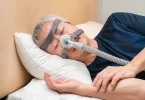Our bodies are complex and remarkable organisms, intricately designed to carry out countless functions to keep us alive and well. To effectively take care of ourselves, it’s crucial to have a fundamental understanding of how our bodies work and what they need to thrive. From hormone management to the importance of nutrition and exercise, here are some key insights to help us better care for our physical health and well-being.
1. Anatomy and Physiology
An understanding of basic anatomy and physiology forms the foundation for self-care. Familiarizing ourselves with the major organ systems, such as the cardiovascular, respiratory, digestive, and nervous systems, helps us appreciate the interconnectedness of our bodily functions. Knowing the purpose and structure of organs like the heart, lungs, liver, and brain enables us to recognize potential signs of dysfunction and take appropriate action. Additionally, understanding how systems work together to maintain homeostasis— the body’s internal balance— allows us to make informed decisions that support overall health and vitality.
2. Nutritional Needs and Dietary Choices
Nutrition plays a vital role in maintaining optimal health and preventing disease. Learning about essential nutrients—such as carbohydrates, proteins, fats, vitamins, and minerals— helps us understand their functions and sources in our diet. By recognizing the importance of balanced nutrition, we can make informed dietary choices that provide the necessary fuel and building blocks for our bodies to function efficiently. Understanding concepts like portion control, food labels, and mindful eating empowers us to cultivate healthy eating habits that nourish our bodies and promote well-being.
3. Physical Activity and Exercise
Regular physical activity is essential for maintaining cardiovascular health, muscular strength, flexibility, and overall well-being. Understanding the benefits of exercise— including improved mood, stress reduction, and disease prevention— motivates us to incorporate movement into our daily routine. Learning about different types of exercise, such as aerobic, strength training, and flexibility exercises, allows us to create a well-rounded fitness regimen that meets our individual needs and goals. By prioritizing regular physical activity, we invest in our long-term health and quality of life.
4. Sleep and Restorative Rest
Quality sleep is fundamental to our physical, mental, and emotional health. Understanding the importance of sleep hygiene— including consistent sleep schedules, creating a relaxing bedtime routine, and optimizing sleep environment— helps us improve sleep quality and duration. Recognizing the role of sleep in memory consolidation, immune function, and hormone regulation underscores its significance for overall well-being. Prioritizing restorative rest allows our bodies to recharge, repair, and rejuvenate, supporting optimal performance and resilience in our daily lives.
5. Stress Management and Mental Health
Chronic stress can have profound effects on our physical health and mental well-being. Learning about stress management techniques—such as mindfulness, relaxation exercises, and cognitive-behavioral strategies— empowers us to effectively cope with stressors and reduce their impact on our health. Understanding the connection between stress and conditions like hypertension, digestive disorders, and depression highlights the importance of proactive self-care practices. By prioritizing mental health and seeking support when needed, we enhance our resilience and ability to navigate life’s challenges with greater ease.
6. Preventive Healthcare and Regular Checkups
Preventive healthcare plays a crucial role in detecting and addressing potential health issues before they escalate into more serious conditions. Understanding the importance of regular checkups, screenings, and vaccinations empowers us to take a proactive approach to our health. By scheduling routine appointments with healthcare providers and participating in recommended screenings—such as blood pressure checks, cholesterol tests, and cancer screenings— we can identify risk factors early and take steps to mitigate them. Investing in preventive healthcare not only promotes early detection and treatment but also supports long-term health and well-being.
Conclusion
Taking care of ourselves requires a comprehensive understanding of our bodies and their unique needs. By gaining insights into basic anatomy and physiology, nutritional requirements, physical activity, sleep hygiene, stress management, and preventive healthcare, we can make informed decisions that support our overall health and well-being. Armed with this knowledge, we are better equipped to prioritize self-care practices that nurture our bodies, minds, and spirits, allowing us to thrive and live life to the fullest.








